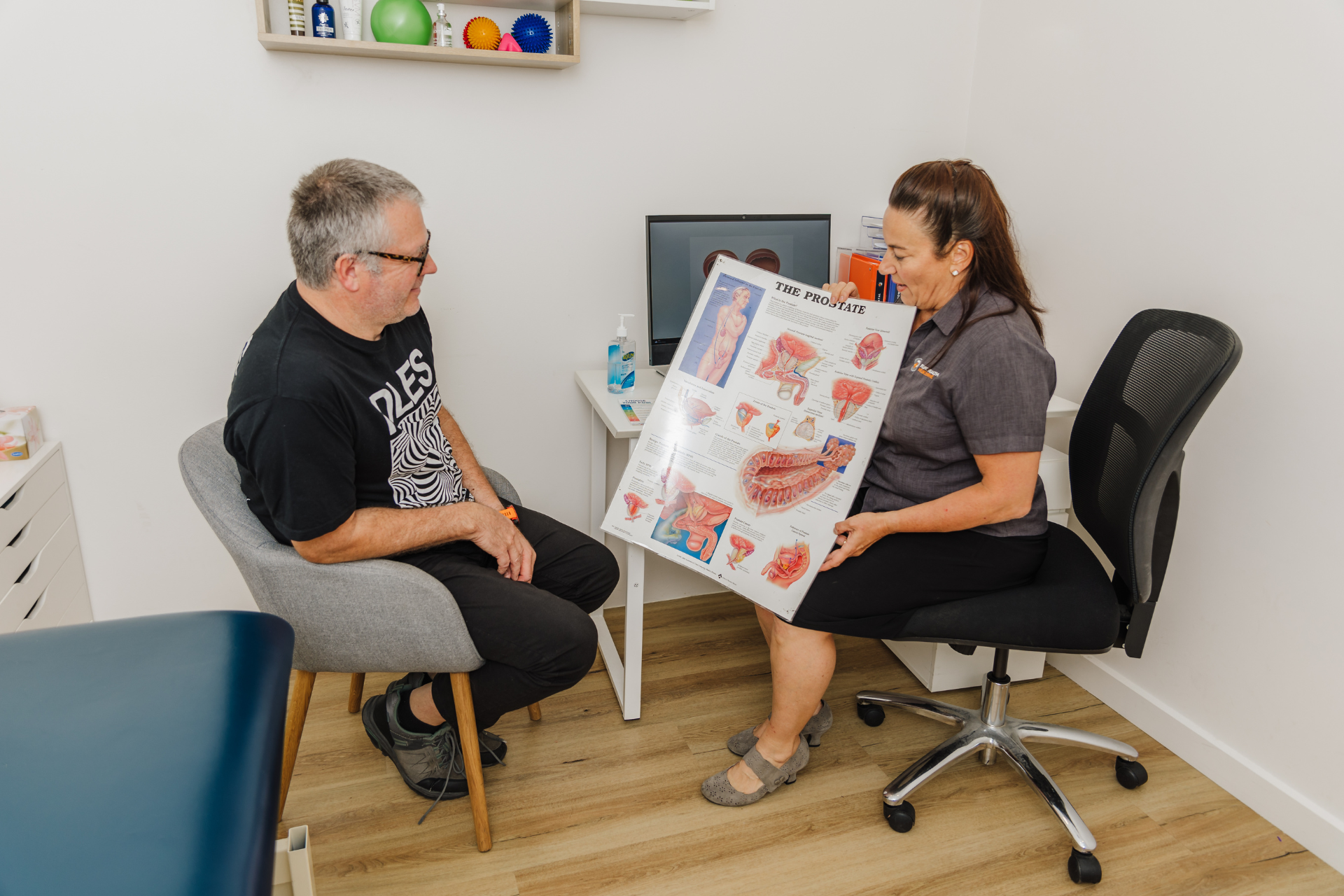By Kylie Conway
•
November 5, 2025
Understanding Prostatitis: What You Need to Know Prostatitis is a common condition that affects the prostate gland, a small walnut-sized organ found in males just below the bladder. It can cause a range of uncomfortable symptoms, including pain, urinary issues, and sexual discomfort. While it can be distressing, it’s important to know that prostatitis is treatable and does not mean you have prostate cancer. What Is Prostatitis? Prostatitis refers to inflammation or irritation of the prostate gland. It is the most frequently diagnosed urological problem in males under 50 and can affect males of all ages. According to the Royal Australian College of General Practitioners (RACGP), up to 15% of Australian males will experience symptoms of prostatitis at some point in their lives. Despite its prevalence, many males feel unsure about what it means and how it’s managed. Types of Prostatitis Acute Bacterial Prostatitis (ABP) ABP is a sudden and severe infection of the prostate caused by bacteria, most commonly Escherichia coli. Symptoms include fever, chills, dysuria, pelvic pain, urinary retention, and systemic illness. It is considered a medical emergency requiring prompt diagnosis and treatment with intravenous or oral antibiotics. Hospitalization may be necessary in severe cases. Chronic Bacterial Prostatitis (CBP) CBP involves recurrent bacterial infections of the prostate with similar but less intense symptoms than ABP. Patients may experience intermittent urinary tract infections, pelvic discomfort, and post-ejaculatory pain. Diagnosis is confirmed through culture of expressed prostatic secretions or post-prostatic massage urine samples. Treatment typically involves prolonged antibiotic therapy for four to six weeks, guided by culture and sensitivity results. Chronic Prostatitis/Chronic Pelvic Pain Syndrome (CP/CPPS) CP/CPPS is the most prevalent form of prostatitis, accounting for over 90% of cases. It is characterized by pelvic pain lasting more than three months in the absence of detectable bacterial infection. Symptoms include pain in the perineum, suprapubic region, testicles or lower back, urinary frequency, urgency, dysuria, and painful ejaculation. The condition is multifactorial, with contributing elements such as pelvic floor muscle dysfunction, neurogenic inflammation, and psychosocial factors. Management is multidisciplinary and includes pelvic floor physiotherapy, pharmacological agents, and lifestyle modifications. Asymptomatic Inflammatory Prostatitis This form is diagnosed incidentally during evaluation for other conditions, such as infertility or prostate cancer screening. It is defined by the presence of inflammatory cells in prostate tissue or fluid without associated symptoms. No treatment is required as it does not impact health outcomes. Clinical Presentation Common symptoms across prostatitis subtypes include pelvic or perineal pain, urinary urgency and frequency, incomplete bladder emptying, and discomfort during or after ejaculation. In ABP and CBP, symptoms may be accompanied by signs of infection. In CP/CPPS, pain is the dominant feature and may be exacerbated by stress, prolonged sitting, or certain dietary factors. Role of Pelvic Floor Physiotherapy Pelvic floor physiotherapy is a cornerstone of treatment for CP/CPPS. Evidence supports the use of manual therapy, myofascial release, biofeedback, and pelvic floor muscle relaxation techniques to reduce muscle hypertonicity and alleviate pain. Patients are taught diaphragmatic breathing, stretching exercises, and behavioral strategies to manage flare-ups. Comprehensive Management Approach Treatment is tailored to the specific type of prostatitis. For ABP and CBP, antibiotics are the primary intervention. For CP/CPPS, a multimodal strategy is recommended. This includes alpha-blockers to improve urinary flow, anti-inflammatory medications, neuromodulators for nerve-related pain, and cognitive behavioral therapy for associated anxiety or stress. Dietary modifications such as reducing caffeine, alcohol, and spicy foods may reduce irritation. Regular physical activity and proper hydration support overall pelvic health. Key Takeaways Prostatitis is not associated with an increased risk of prostate cancer. While symptoms can be persistent, particularly in CP/CPPS, most patients experience significant improvement with appropriate care. Early diagnosis and a coordinated approach involving urology and pelvic health physiotherapy optimize outcomes. Patient education on the nature of the condition, realistic expectations for recovery, and self-management strategies are essential components of care.













